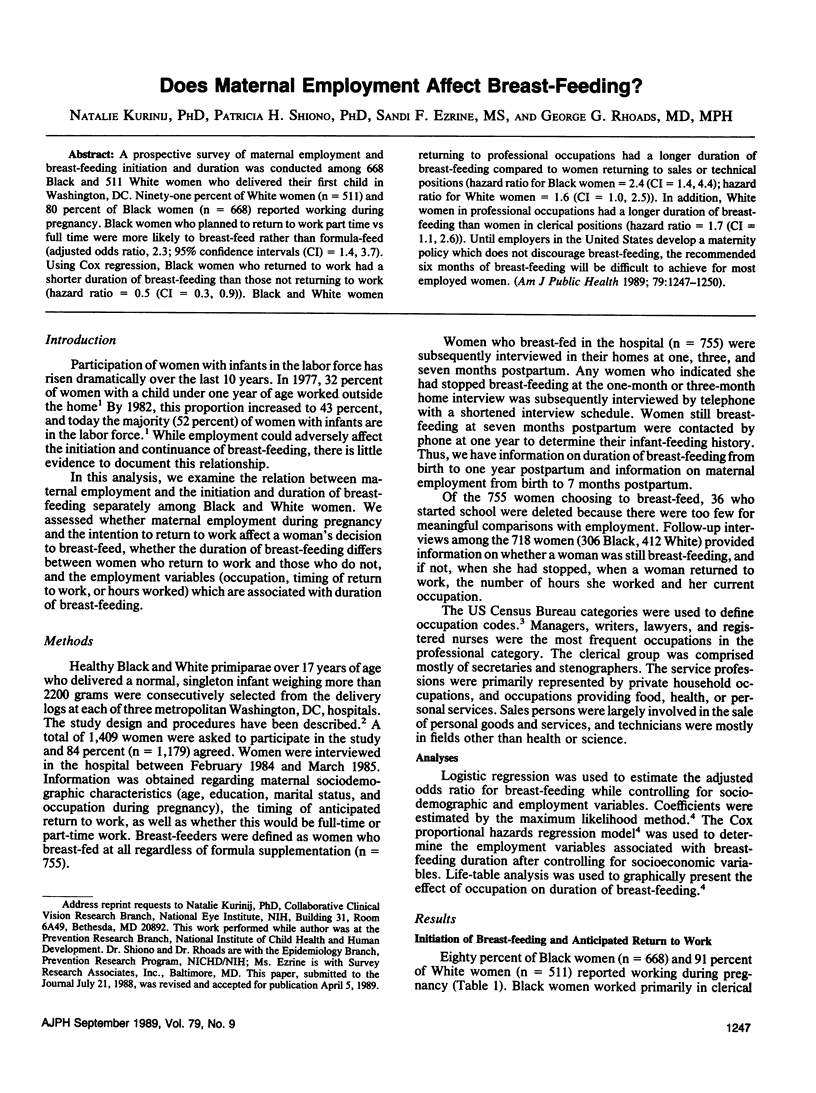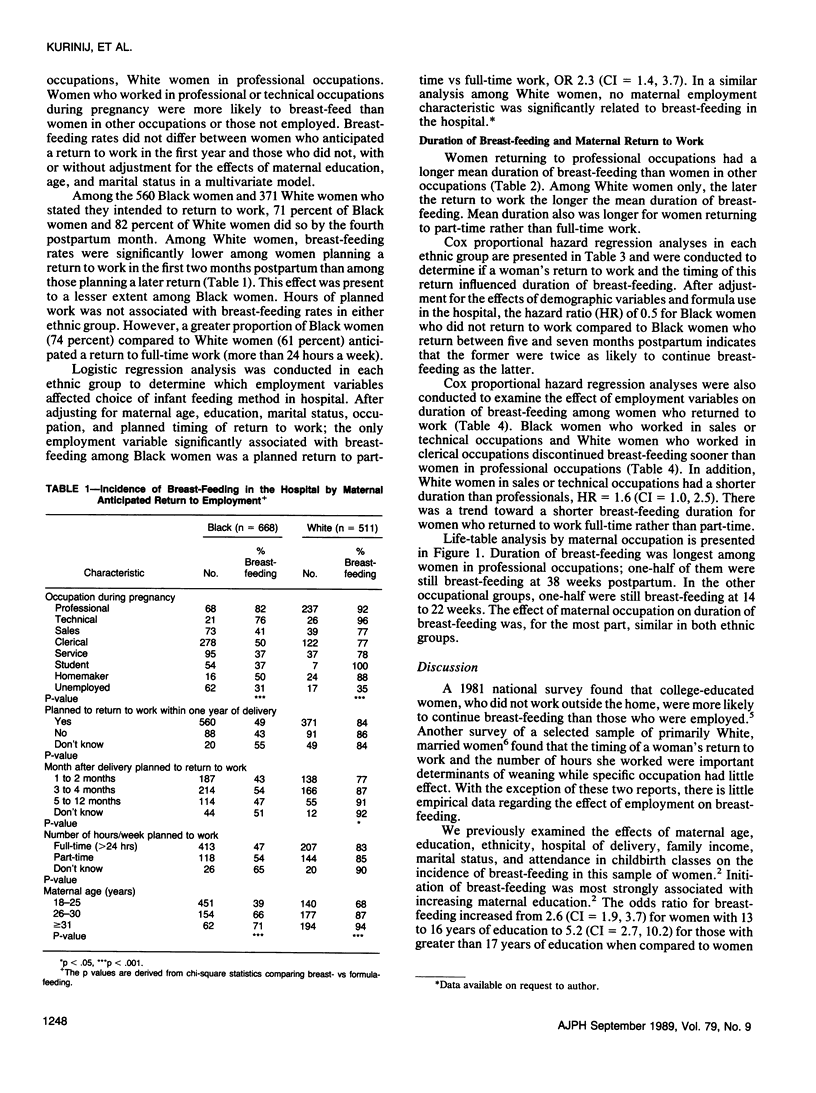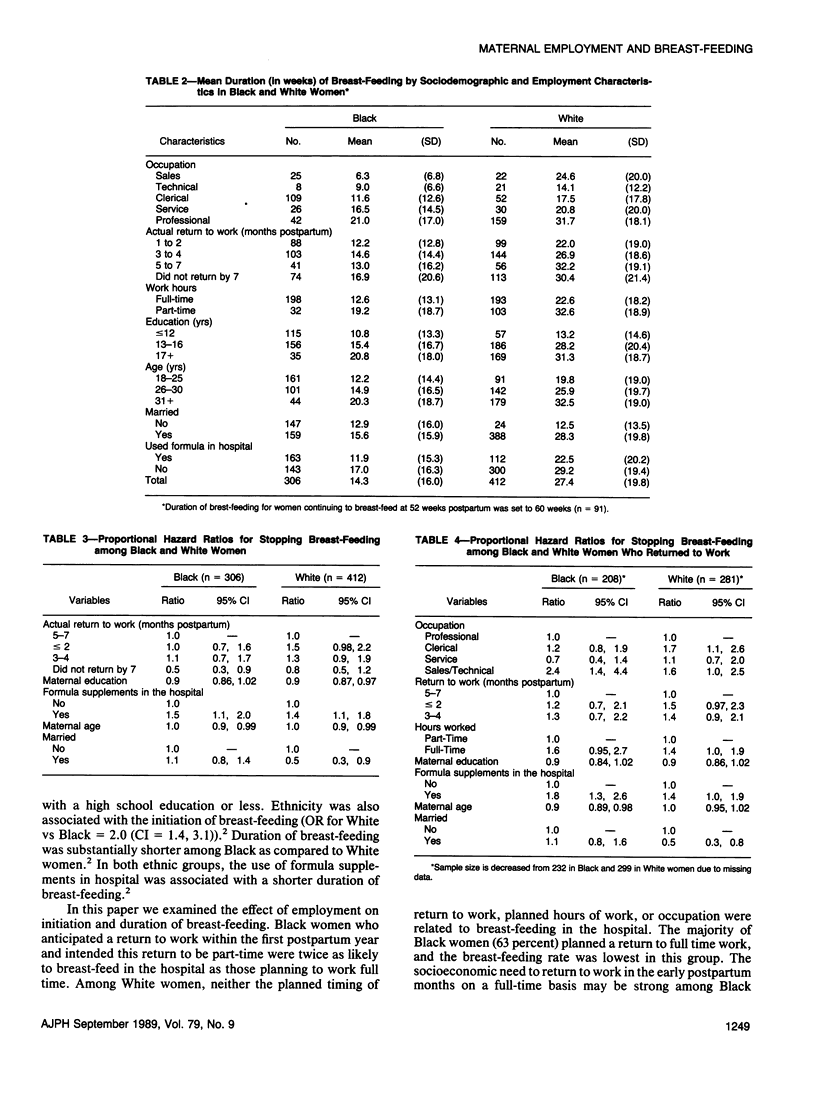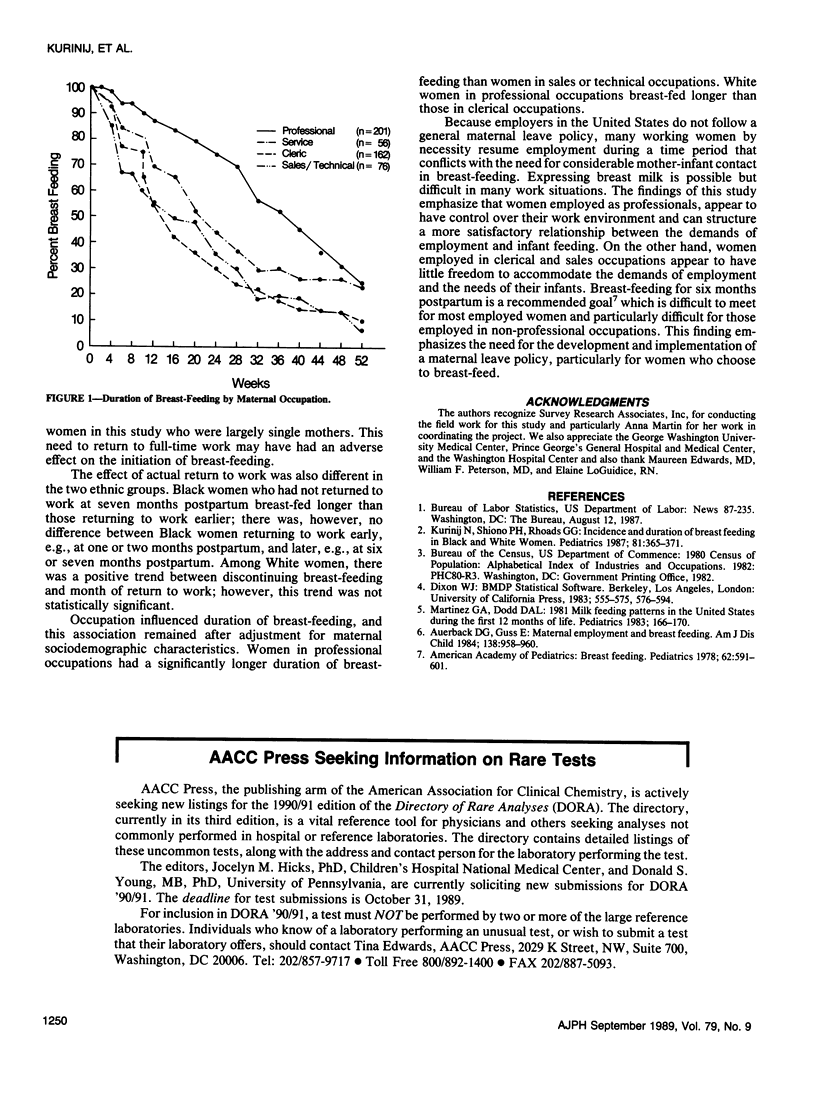Abstract
A prospective survey of maternal employment and breast-feeding initiation and duration was conducted among 668 Black and 511 White women who delivered their first child in Washington, DC. Ninety-one percent of White women (n = 511) and 80 percent of Black women (n = 668) reported working during pregnancy. Black women who planned to return to work part time vs full time were more likely to breast-feed rather than formula-feed (adjusted odds ratio, 2.3; 95% confidence intervals (CI) = 1.4, 3.7). Using Cox regression, Black women who returned to work had a shorter duration of breast-feeding than those not returning to work (hazard ratio = 0.5 (CI = 0.3, 0.9]. Black and White women returning to professional occupations had a longer duration of breast-feeding compared to women returning to sales or technical positions (hazard ratio for Black women = 2.4 (CI = 1.4, 44); hazard ratio for White women = 1.6 (CI = 1.0, 2.5]. In addition, White women in professional occupations had a longer duration of breast-feeding than women in clerical positions (hazard ratio = 1.7 (CI = 1.1, 2.6]. Until employers in the United States develop a maternity policy which does not discourage breast-feeding, the recommended six months of breast-feeding will be difficult to achieve for most employed women.
Full text
PDF



Selected References
These references are in PubMed. This may not be the complete list of references from this article.
- Auerbach K. G., Guss E. Maternal employment and breastfeeding. A study of 567 women's experiences. Am J Dis Child. 1984 Oct;138(10):958–960. doi: 10.1001/archpedi.1984.02140480060018. [DOI] [PubMed] [Google Scholar]
- Kurinij N., Shiono P. H., Rhoads G. G. Breast-feeding incidence and duration in black and white women. Pediatrics. 1988 Mar;81(3):365–371. [PubMed] [Google Scholar]
- Martinez G. A., Dodd D. A. 1981 milk feeding patterns in the United States during the first 12 months of life. Pediatrics. 1983 Feb;71(2):166–170. [PubMed] [Google Scholar]



